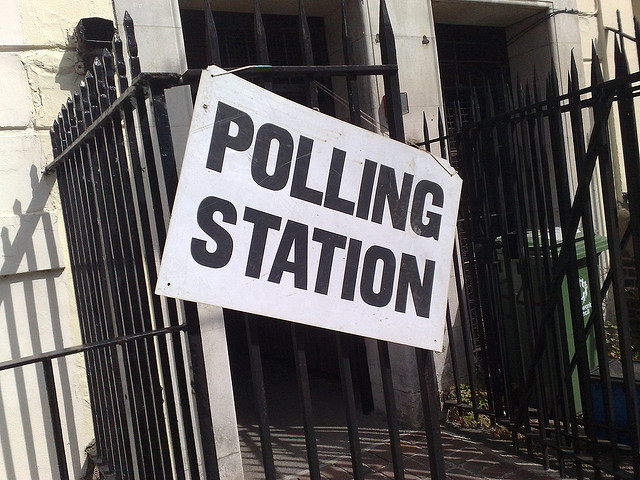What time? Purdah.
Purdah is one of the English language’s magpie words, one of its legacies of centuries of imperial lust for shiny baubles to steal to feather the domestic nest. Taken from Urdu’s parda and Farsi’s pardah—meaning “veil” or “curtain”—it was absorbed into British English by the early twentieth century. In South Asia, the term described the practice of secluding women from male strangers, either via clothing or through space; men were forbidden from the zenana, the women’s quarters within households. In Britain, it came to describe seclusion or isolation (in the 1928 J. Galsworthy novel Swan Song, as the OED informs us, “The diagnosis of Kit’s malady [sc. measles] was soon verified, and Fleur went into purdah”).
Though only vaguely understood by the wider population, the word’s deep imperial roots tell us something about how British political culture weaponizes tradition and jargon as a bulwark against radical political change. It’s an unusual word, but the people who use it tend not to realize that, because their personal and political networks are filled with people who understand it. Britain is not, in many ways, a modern country; language functions as a gatekeeper and marker of status and belonging within a political system still heavily dominated by white male elites. It was not until Boris Johnson’s resignation as Foreign Secretary in July 2018 that there had ever existed a Conservative Cabinet without an old Etonian in it. Purdah is Westminster, condensed.
Until the early 1990s, purdah was the ironclad rule that the Chancellor of the Exchequer was not allowed to reveal the contents of the Budget before announcing them in the House of Commons. Hugh Dalton, Chancellor during the post-war Attlee government, was forced to resign in 1947 for revealing plans to a lobby journalist. This practice was abolished in 1993 by Ken Clarke, who was unwilling to let a long-running nicety get in the way of his freedom to lunch with whomever he chose—and today, the Chancellor leaks key titbits to the press in the run-up to the Budget Day speech.
(Budget Day marks another odd British political tradition: the Chancellor can drink alcohol while delivering their plans, the only time this is permitted in the chamber. The Opposition has to respond to the Budget immediately after hearing the speech, their preparation limited to the aforementioned press leaks.)
Today, purdah describes the period of “heightened sensitivity” for civil servants between the time when Parliament is dissolved in anticipation of an election and the formation of a newly elected government to replace it. In this period, civil servants are enjoined to “not publish any material which, in whole or in part, appears to be designed to affect public support for a political party”; such material must be left behind the curtain. Government ministers are also expected not to use their office to campaign for their party, and to refrain from taking controversial decisions or making political statements in their official positions.
And who could object if purdah stops the offices of state from being used for election campaigning? The Welsh government officially advised in 2005 that the term purdah should be avoided, and when it was reported that the term might offend Muslim voters, some traditionalist MPs protested “political correctness gone mad.” (It seems equally likely that it was simply seen as outdated, incomprehensible jargon.) But the practice itself is generally accepted as a sensible and inoffensive separation of powers flowing out of an apparently British sense of “fair play.” Factual explanations of existing Government policies, statements, or decisions are legitimate, while new policies or programs—which might curry favor with the electorate—are to be avoided. So while the civil service is allowed to issue “factual” statements during purdah and even to present the minister’s justification for these policies, they cannot defend policies or programs in political terms, attack opposition groups, or intervene in “party” political issues.
In this way, purdah is an attempt to negotiate a compromise between British ideals about “fair play” in elections and a recognizable elite British distaste for the dirty daily work of politics. Official government neutrality promises a cleaner, more gentlemanly way of doing things. But everything is political; all actions by the government—even the factual announcements of policies—are politics, and nothing, perhaps, is as political as policing the boundaries of politics. And the results can be unpredictable; when the London Bridge terror attack happened, five days before the 2017 election, the vote could not be postponed without a change in the law, but since Parliament had been dissolved and MPs had become ex-MPs, banned from working in the Palace of Westminster, there was no parliament to do so, and so the election went ahead.

It’s worth asking why fair play must occur only at particular times; after all, if purdah stops governing parties from rushing out popular policies in the run-up to an election, the civil service is always supposed to be an apolitical institution. And in practice, government departments exercise considerable and consequential discretion over what information is deemed to break purdah. In the run-up to the Scottish independence referendum, for example, the civil service provided information for both Westminster and the Scottish government, but given the question at the heart of the referendum, the Treasury was far more able to provide information about the economics of Scotland as part of the UK than about the economic potential of Scotland independent.
In 2015, David Cameron tried to relax the purdah rules in the run-up to the “Brexit” referendum, since they prevented him from using government resources to issue warnings about what would happen if Britain left the EU, even simple “nonpartisan” projections. Cameron argued that the referendum was being held on a topic on which the government had a clear public position—having previously renegotiated what it believed to be favorable terms for EU membership—and so purdah was pointless. He was blocked: MPs objected to what they characterized as an attempt to “play fast and loose” with the traditional conduct of British elections. Even Labour MPs— many of whom would presumably have agreed with government messages on the topic—would not stand for altering purdah. It didn’t matter that this prevented the Treasury or the Foreign Office from outlining the many foreseeable ramifications of Britain leaving the European Union; the traditions of purdah took precedence. The reports were left unissued.
There is also a kind of media purdah: though British newspapers are some of the most partisan in the world, broadcast media officially strives for political neutrality. On the day of an election, from half past midnight until polls close, it is illegal to report anything that might influence polling, including exit polls. This makes British election-day coverage bizarrely stilted, little more than shots of the main party leaders casting votes for themselves in their own constituencies, with their husbands or (usually) wives tightly gripping their hands and waving through fixed smiles. (Recently, the British press have become more excited by cute dogs at polling stations—even less likely to offend.) Campaigns cannot buy political advertisements; instead, the major parties are allocated free airtime. But in practice, officially sanctioning the influence of “major” parties has a political effect of its own, by omitting parties deemed “minor” from guaranteed media space. Equally, when “Leave” and “Remain” were given equal television time during the lead-up to the Brexit referendum, this official media neutrality helped to close the gap in a contest that very few pundits expected to fall the way it did.
There is a politics to inoffensiveness. When purdah first entered British English through India, the idea of putting women behind a curtain, whether physically segregating them within the women’s section of the house or forcing them to wear a veil or a burqa, was believed by the British to be uncivilized or improper. This scandalized reaction was a deliberate disavowal of idealized British gender relations; after all, Victorian middle-class society confined women and girls to the domestic sphere, denied them their legal rights and political citizenship. But along with wife-burning, child marriage, and dowry, purdah gave British imperial feminists a campaign they could conduct for their “sisters” overseas while demonstrating to their male compatriots that they were capable of political action. By reinforcing the imperial order—depicting Indian women as voiceless and helpless, to be spoken for, never with—their own voices were slotted into the hierarchy of the British imperial order, rendered inoffensive and, thus, ready for politics.
Resting on a distinct mixture of precedent, convention, codes of conduct, and statutory requirements, purdah evokes a type of British politics and politician: striving to be out of time and place, clean and neutral, modern yet traditionally British. But if we think of the civil service’s neutrality as political in a different way—as holding power through expertise and common sense and history, filled with officials who are gently scathing of each generation of politicians who sweep in trying to change things—then purdah comes to look like more like a fig leaf than an out-of-bounds marker.
***
Tour of Babel is a regular Popula column, in which we translate the world’s words that can’t be translated, the phrases and expressions that don’t travel (but that also, it turns out, do).





